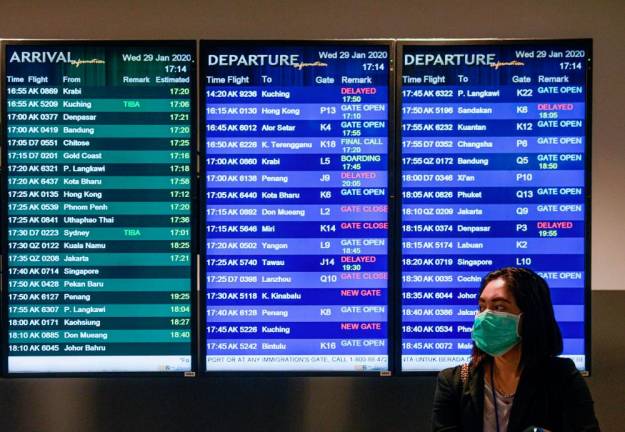Wuhan virus outbreak likely to have dampening effect on Malaysian economy
PETALING JAYA: The novel coronavirus from Wuhan is likely to have a dampening impact on the Malaysian economy, particularly for the services and tourism-related sectors, according to a report from AmResearch.
Chief economist Anthony Dass said the seriousness of the impact, however, will depend on the duration, seriousness of the virus and the structure of the economy.
“For now, it is tough to ascertain the severity given that there is no clear clue on the development and nature of coronavirus. Hence, it complicates our impact analysis for now,” he said.
Dass pointed out that although questions remain about the development and nature of the novel coronavirus, many countries are better prepared in pandemic management following lessons from the shortfalls identified in the SARS (Severe Acute Respiratory Syndrome) outbreak in 2003.
“Just like China, we find Malaysia’s growth is also notably different today from the time during the outbreak of SARS in 2003.
“Today, underpinned by external uncertainties and domestic challenges and prior to the coronavirus outbreak, the domestic economy is likely to grow around 4.6%, which is our base case, with the lower end growth target of 4-4.3% from an estimated 4.5% in 2019,” he said.
However, assuming the full-blown impact from the coronavirus outbreak is felt in Q2 2020 with an easing off thereafter, Malaysia’s gross domestic product (GDP) could be reduced by 0.6-1% or 1.2-1.6% as the worst case.
“Irrespective of falling into our base or worst-case scenario, it will be strenuous on the economy under the current conditions, unlike in 2003. Hence much depends on how fast and effective the policies are rolled out as containment measures. Such policy measures can result in a higher cost on the economy in the near term,” Dass said.
Tourism-related businesses such as accommodation, food & beverages, travel & transport, entertainment, shopping, and other miscellaneous services are expected to be particularly hard hit with a 1% change in tourism receipts and capital investment in the tourism industry will impact GDP by 0.2% and 0.6% respectively.
“Consumer confidence would decline and hurt private consumption spending which remains the growth anchor for 2020. A combination of uncertainty and fear generated by the coronavirus will drive people to stay home to reduce the probability of an infection,” said Dass.
However, the use of smartphones for payments, food ordering and other transactions every day may cushion the downside of private consumption and retail sales, he added.
Dass also said that investment will be affected from lower demand, heightened uncertainties and risks.
“With the outbreak of the coronavirus, the risk of excess capacity emerging or increasing cannot be ruled out. Furthermore, foreign investments’ inflow may be delayed or reduced in reaction to the outbreak,” he said.
Raising government spending might also be necessary to mitigate the impact of the outbreak.
On the ringgit, Dass said it will depend on the direction of yuan and oil prices, besides the domestic policy measures instituted.
Meanwhile, he noted that Bank Negara Malaysia could still reduce rates by another 25 basis points (bps) to 50bps if the external risk continues to be the main concern from the current 2.75% level.
Source: TheSunDaily

